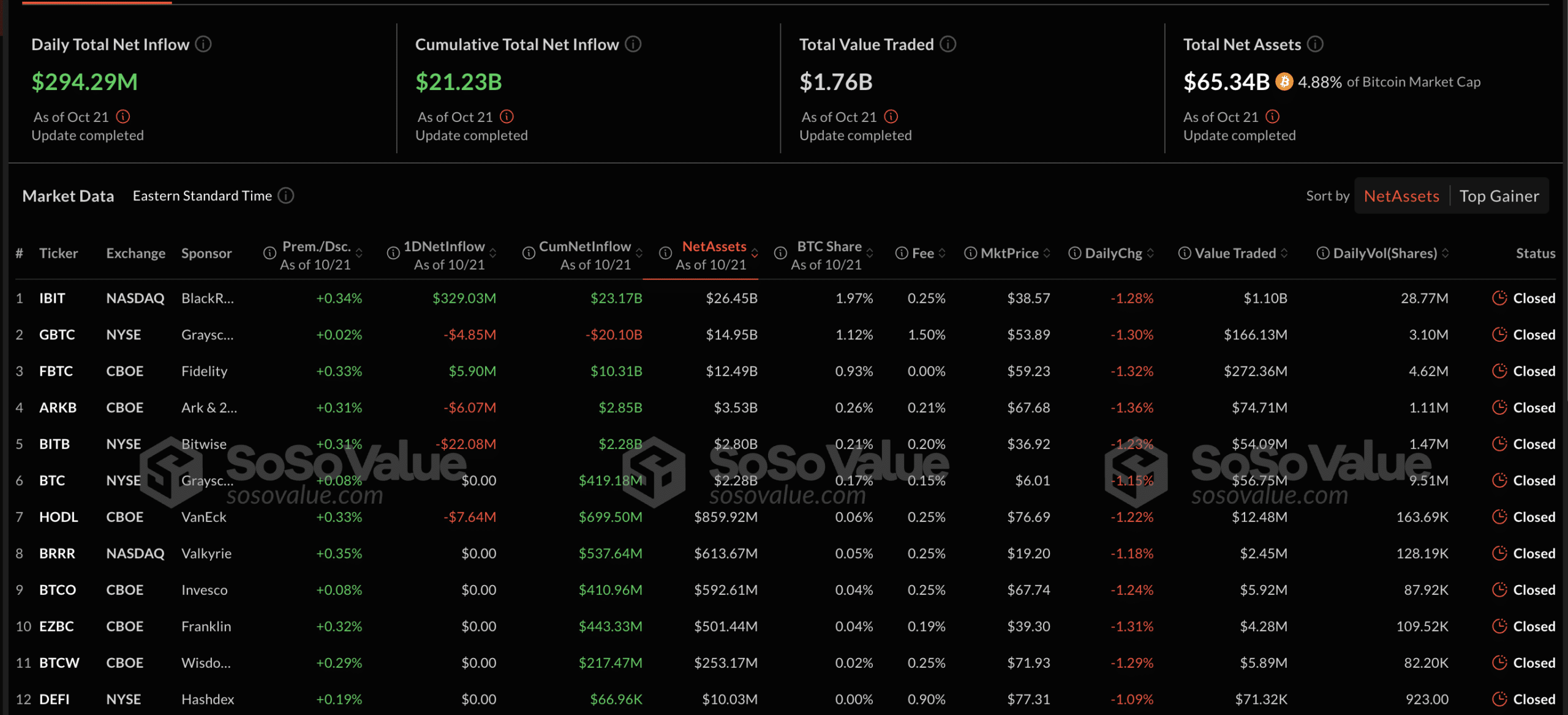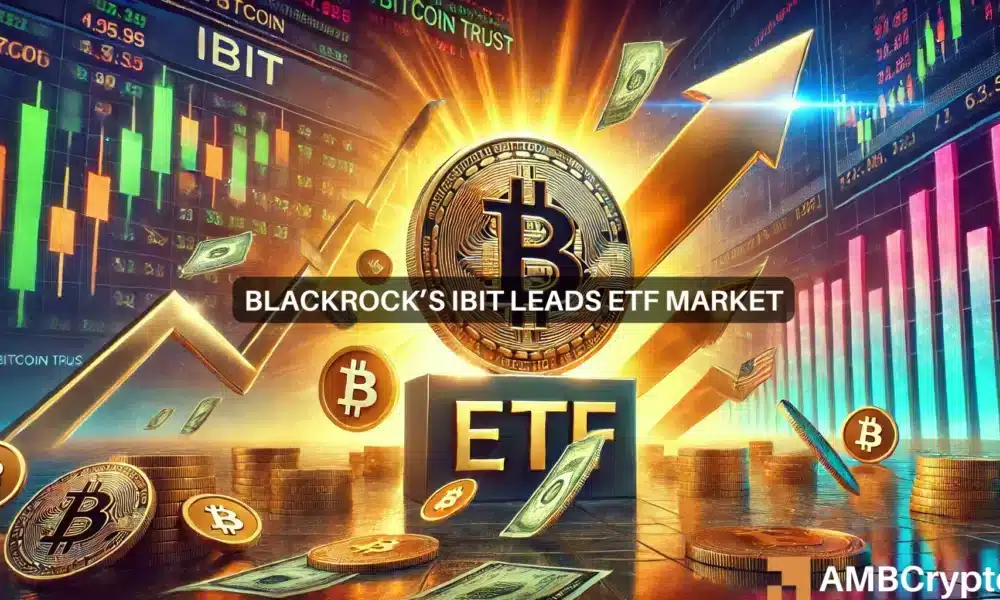- Cumulative inflows into Bitcoin ETFs are $21 billion, while BTC is around $2,500, up from $70,000.
- IBIT emerges as the market leader.
Bitcoins [BTC] the recent awards tour was nothing short of impressive. The coin continues to make headlines, whether crossing critical price thresholds or reaching milestones inflow of Exchange Traded Funds (ETFs)..
This week, BTC surged past the critical $68,000 mark and inched closer to the $70,000 valuation.
However, at the time of writing, the price had dropped to $67,442. While this marked a decline of 2.25% over the past day, monthly gains remained strong at 6.86%.
Now the king coin is about 3.65% away from reaching $70,000, and with record inflows into Bitcoin ETFs, achieving this goal wouldn’t be that far-fetched.
According to facts of SoSo Value, total net inflows as of October 21 were $294.29 million, contributing to a cumulative total inflow of $21.23 billion.
Moreover, its total net assets amounted to $65.34 billion, representing 4.88% of the cryptocurrency’s total market capitalization.


Source: SoSo value
BlackRock’s IBIT dominates the Bitcoin ETF market
It’s worth noting that a major contributor to this inflow was BlackRock’s iShares Bitcoin Trust (IBIT). Despite the price drop, IBIT recorded an inflow of $329 million on October 21.
Furthermore, it outperformed all spot Bitcoin ETF products, with total net inflows of $23 billion.
Eric Balchunas, senior ETF analyst at Bloomberg, noted on X that IBIT had an exceptional week. The ETF attracted $1.1 billion in new money. Additionally, it surpassed Vanguard’s VTI for third place in YTD flows.


Source: Eric Balchunas/X
What made this performance even more remarkable, according to the analyst, was that IBIT is a relatively new launch, competing with ETFs that have been around for more than two decades and manage hundreds of billions of dollars.
BlackRock’s IBIT now has $26 billion in assets under management, putting it in the top 2% of all ETFs globally.
Bitcoin ETFs vs Gold ETFs
These notable inflows raise questions about whether Bitcoin ETFs are drawing investors away from traditional safe-haven assets.
Balchunas weighed in on this competition between Bitcoin and gold. In a interview with Bloomberg Surveillance he noted:
“Bitcoin and the ETFs that have been launched may have stolen the thunder that would otherwise have gone to gold this year.”
The analyst estimated that gold could have seen inflows of as much as $10 billion, without the rise of Bitcoin ETFs.
Much of this shift, he suggested, is a result of Bitcoin’s rising popularity and its increasing role as a competitor to gold in the asset market.
Institutions pile up as consumer interest wanes
The market position of BTC ETFs is a testament to increasing institutional interest. Meanwhile, retail involvement has declined. According to recent data from Google Trends, searches for “Bitcoin” and “Bitcoin ETF” have seen a marked decline.
Interest in ‘Bitcoin ETF’ has remained muted since the launch of spot ETFs in January 2024, with a score from just 2 last week.
Read Bitcoin’s [BTC] Price forecast 2024 – 2025
In the same way, searches for “Bitcoin” are down significantly from March, reaching a score of 33 last week. This stark contrast highlighted the shift in market dynamics.












